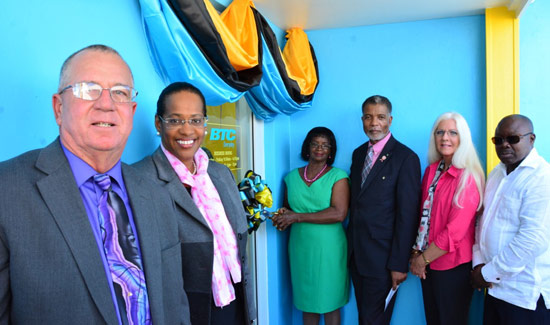 The Bahamas Government is absolutely right to want Bahamians to own a larger share of the Bahamas Telecommunications Company (BTC), but their approach is wrong-headed and will cost this country in cash, in economic competitiveness and in reputation.
The Bahamas Government is absolutely right to want Bahamians to own a larger share of the Bahamas Telecommunications Company (BTC), but their approach is wrong-headed and will cost this country in cash, in economic competitiveness and in reputation.
Where is the Government going to get the money to nationalise BTC? It will have to borrow it. In this Budget alone the Government has set out to borrow half a billion dollars – a staggering amount. With credit agencies putting us on notice of a downgrade we need to think very carefully about what we borrow, and what we then spend the money on.
Is BTC the right place for the Government to spend its scarce resources? Every dollar spent on BTC is a dollar not spent on other essential works. We would do better to invest in the infrastructure we need to make sure the Bahamas is ready when world markets finally recover: Roads, ports and airports are essential. So are schools and hospitals. So is advertising for our tourism product. Or, if there is spare money, and that is doubtful during these times, then why not pay down our dangerously high national debt? Or what about a tax cut for struggling Bahamian businesses?
What is the economic argument in favour? Is there one? It has been demonstrated time and again that Governments do a poor job running essential services, and customers are forced to pay a high price for a poor product. Look at BEC. It is always best to have a deregulated market with competition so prices come down, the customer is put in charge and operators have to give the customer what they want.
This has been happening slowly. BTC has rolled out a lot of new services and reduced rates. They have done so against a backdrop of increasing competition, with Cable Bahamas already offering fixed-line telephone service and cell phone service to come.
How is spending taxpayer money to nationalise BTC going to improve service for the customer? It’s not. How is it going to make a return for the taxpayer? Well, the only way to do that is to continue BTC’s monopoly for a longer period that currently agreed. Is this the plan? This would be a license to print money, but only at the customer’s and the economy’s expense. It would perpetuate all that has been wrong in our telecoms sector, and undo all that we have worked so hard to try and fix.
Further, when we talk about Bahamian ownership, the Government would do well to remember that Cable Bahamas is 100 per cent Bahamian-owned. Any deal that gives BTC an unfair advantage comes at the expense of these shareholders who are investing in the future in telecoms.
In fact, the PLP has never made a clear economic case for why they want to nationalise BTC or what they hope to gain from doing so. Rather, theirs is an emotional case. They want Bahamian ownership.
Here’s where they get it right. While there is everything wrong with the way they are going about this, the end goal is the right one. So the Government should keep their ends but change their means. The era of people owning things through Government is over. Instead, Bahamians want to own shares themselves. The best way to ensure Bahamian ownership of BTC is for the Government to sell its 49 per cent stake to the Bahamian people. To ensure 51 per cent Bahamian ownership, it should secure an undertaking from Cable & Wireless Communications (CWC) that they would in turn sell a minimum of 2 per cent of the stock they hold to the Bahamian people.
Upon completion of the sale of these shares, 51 per cent of the company would be owned by Bahamian stockholders, achieving the Government’s goal. CWC would retain effective control with a 49 per cent share of a public company. At the same time, the Government would raise much-needed funds to pay down debt, helping with our credit rating and sending a signal to the international investing community that the Bahamas is open for business. That is the kind of can-do approach that could work for all parties and provide for the economic future this country needs.
Garth Buckner
BTC Board Member – 2007-2011
October, 2012



